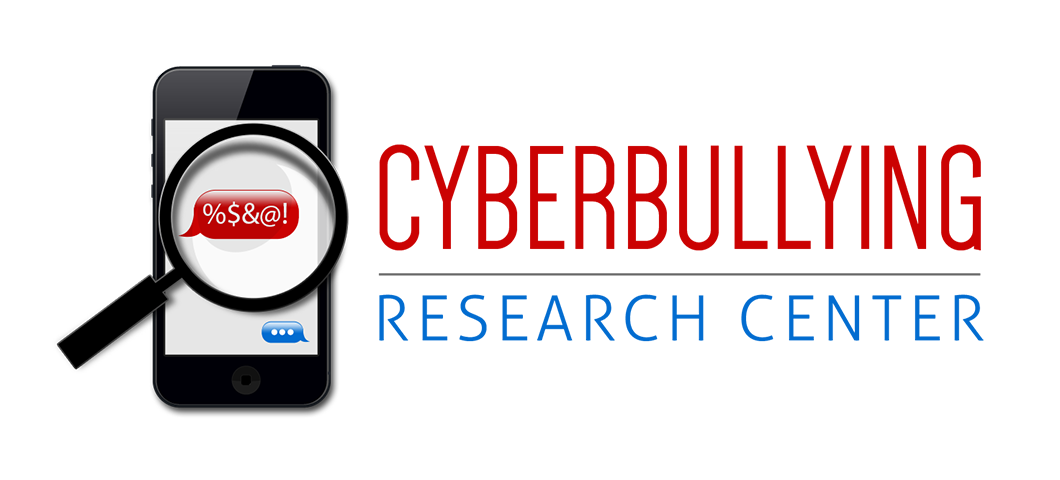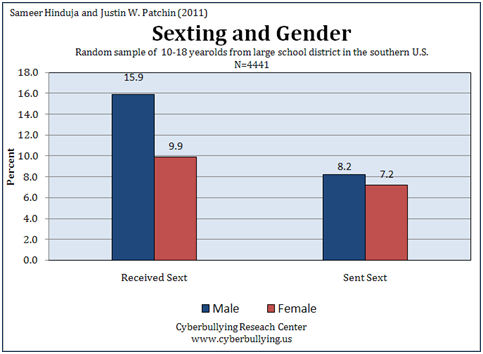Read the latest news and brand new pieces on youth, social media, and emerging technologies! We focus on preventing harm and promoting positive online behaviors.

Using Public Service Announcements To Prevent Cyberbullying
A fun and often-recommended activity to engage youth in considering the responsible use of technology and promoting that message across the student body (or beyond) involves the creation of Public Service Announcements (PSAs). These are creative and informative videos designed to bring attention to a problem relevant to a certain audience, and make a memorable […]

CDC Resource Featuring Our Cyberbullying Survey Items
We often have researchers and practitioners call or email us inquiring about our bullying and cyberbullying assessments, offline and online surveys, focus group questions, and interview measures. We are happy to share them with others because we must all continue to work together to collect methodologically-sound data and conduct meaningful and rigorous analysis of those […]

Password Safety Among Teens
Passwords are necessary to access personal accounts on a computer network. They serve as “authentication” devices and uniquely identify someone as being who they claim to be. Of course, correct authentication prevents others from accessing or altering your personal data. In our current Information Age, passwords are a part of everyday life. However, some users […]

Sexting Research and Gender Differences
There has been a lot of interest in our sexting guide for educators and parents and so I thought it would be a good time to highlight a couple of other findings from that research. Data for this study were collected in the spring of 2010 among a random sample of middle and high school […]

Cyberbullying Evidence and Cell Phone Service Provider Data Retention
Educators and parents are often interested in learning about digital evidence and its collection. Many times, they (or the youth they care for) help with collecting evidence to depict cyberbullying instances by taking screenshots (see our instructional guide here) or using freeware or commercial software to record chat logs, instant messaging conversations, emails, and social […]

Tattling vs Telling
As we work with increasingly younger kids to educate them about the responsible use of technology, we find it extremely important to discuss how they should respond to being cyberbullied. Central to this conversation is covering the difference between “tattling” and “telling.” Perhaps you are extremely familiar with this distinction – but if not, read […]

White House Bullying Conference
On Thursday March 10, 2011, the White House convened a conference to address the issue of bullying. First Lady Michelle and President Obama welcomed parents, students, researchers, industry leaders and others to discuss the negative effects of bullying and highlight some of the best-practices and promising approaches in prevention and response. I was honored to […]

Additional Thoughts on Sexting Advice for Teens
Thanks to all for their comments on my recent blog about how teens should respond when they receive a “sext.” Here are some of my follow-up thoughts, based on comments and emails received, as well as an email exchange among members of the Youth Risk Online Google Group which includes some of the brightest “teens […]

You Received a “Sext,” Now What? Advice for Teens
If you are a teen and receive a sexually-explicit image of a classmate via your cell phone (or email, or instant message, or via a Nintendo Dsi, or any other type of electronic communication), what should you do? This can be a challenging situation, to say the least. We know that anywhere from 10-30% (or […]

Cyberbullying Rates Across the World, and the Role of Culture
UPDATE: See the cyberbullying research by country in our new interactive map and section of our site! Being Americans, we tend to focus a lot of attention on offline and online peer harassment here at home. It is interesting, though, to consider the cross-cultural research that has been done on traditional bullying and think about […]

